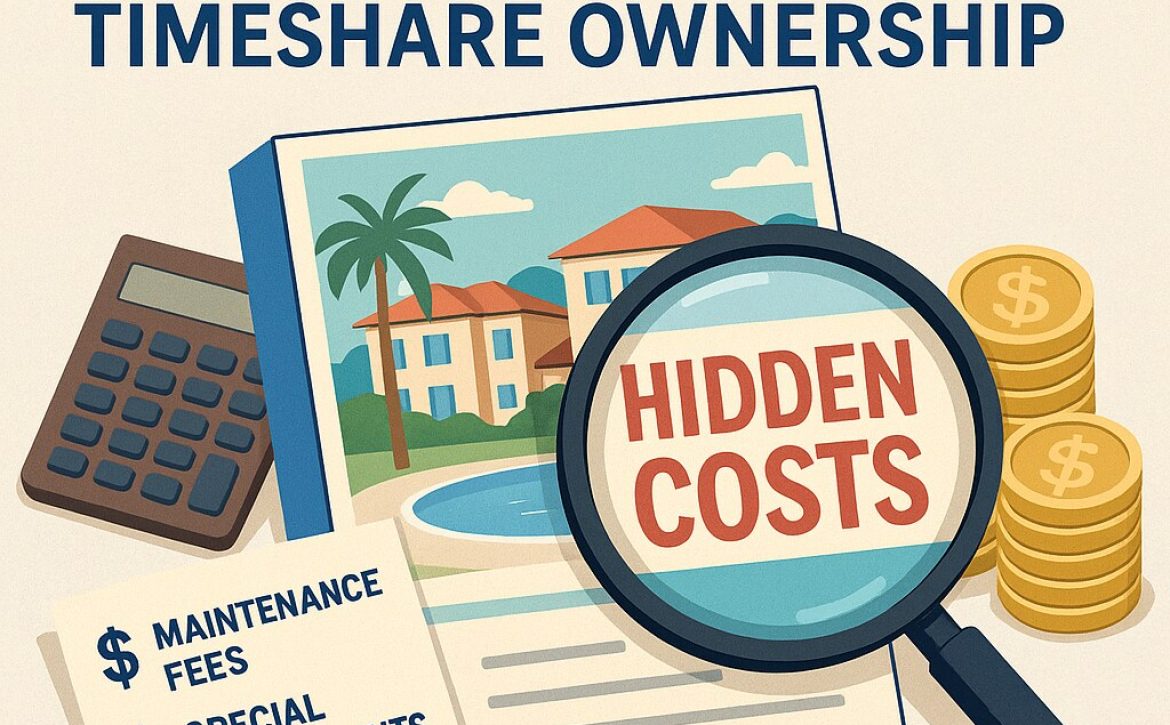Exposing the Hidden Costs of Timeshare Ownership


Timeshares are often marketed as a luxurious and cost-effective alternative to traditional vacation planning. With promises of guaranteed annual getaways and access to exclusive resorts, it’s easy to understand why many people are drawn into signing a contract. However, beneath the glossy brochures and sales presentations lies a reality that many owners don’t fully understand until it’s too late. The true cost of timeshare ownership goes far beyond the initial purchase price.
In this article, we’ll expose the hidden costs of timeshare ownership and what every prospective buyer—and current owner—should know.



Maintenance fees are one of the most notorious and underestimated costs of timeshare ownership. These are recurring annual charges that go toward upkeep of the property, staff salaries, utilities, and general administration.
What many buyers don’t realize is that these fees:
In some cases, owners pay hundreds to thousands of dollars each year, turning their affordable getaway into a financial strain.

Beyond routine maintenance fees, timeshare owners may be hit with special assessments—one-time charges levied for major repairs, renovations, or unexpected damages (such as hurricane recovery or plumbing upgrades). These costs are typically non-negotiable and can come with little warning.
These assessments can range from a few hundred to several thousand dollars, and refusal to pay can result in collections or foreclosure on the timeshare interest.
There are no secrets to success. It is the result of preparation, hard work, and learning failure. – OLIVER SANDERO
Unlike traditional mortgages with competitive interest rates, timeshare financing often comes with high-interest loans. Many buyers are caught off-guard by the fine print after agreeing to in-house financing during a sales presentation.
Interest rates can range from 12% to over 20%, significantly increasing the total cost of ownership. Worse still, these loans are rarely reported to credit bureaus in a positive way but can harm your credit score if payments are missed or defaulted.
To give owners more flexibility, timeshare companies often promote “exchange programs,” allowing you to trade your week or points for access to other properties. While this sounds appealing, it comes at a price.
You may be charged:
In the end, the flexibility may cost hundreds more per year on top of what you already pay.
Timeshares are rarely “all-inclusive.” Owners are still responsible for:
Additionally, some contracts come with blackout dates, limited availability, or complex point systems that restrict when and where you can travel—making it harder to justify the ongoing costs.
Want to get rid of your timeshare? That too can come with a cost. Some resorts charge transfer fees or exit processing fees if you decide to legally return or give away the timeshare. There’s often little support or guidance, forcing many to turn to third-party companies that charge thousands to help facilitate the exit.
Timeshare ownership is often sold as a hassle-free, economical way to vacation. But when you tally the hidden costs—rising maintenance fees, surprise assessments, steep interest rates, and endless surcharges—it becomes clear that the actual cost of owning a timeshare is much higher than advertised.
Before buying, ask yourself: Am I truly getting value for what I’m paying? For many, the answer—especially when all costs are exposed—is a resounding no.
